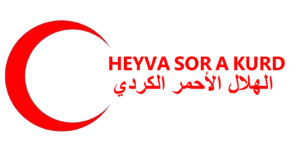Primary health care/PHC/ services target the needs of individuals, families and communities containing health and well-being in their comprehensive and interrelated physical, psychological and social aspects. It provides lifelong health care to the person as a whole, not limited to some specific diseases.
The /PHC/ guarantees getting comprehensive health care access for all people starting from counseling, prevention, treating, rehabilitation and palliative care. Currently, it plays the crucial role in managing the main reasons and risks for the bad health and well-being, including the new obstacles that could get them worse in the future. In addition to decreasing the cases that need hospitals and achieving the sustainable development aims concerning health and comprehensive health coverage.


To meet people needs and starting from the main health aspects, KRC dedicated a large portion of its services to provide PHC through 45 medical points distributed in cities, camps, hospitals, and mobile clinics in all NES. However, there are many departments (health educating, internal clinic- pediatrician- gynecology- Obstetrics- Leishmania-Labs- primary psychological clinic or psychological support- emergency)
Manbij center is a good example of providing primary health care to the locals and its countryside for more than three years. Ms. Malik Qassem, team leader, summarized the outcome of this center.

- Tracking epidemics-Corona virus- through triage chamber (this room recognizes the infected people before disease worsens, then they are directed to get the appropriate treatments)
- Tracking social issues (poverty that leads to malnutrition) through conducting visits to the center beneficiaries
- Following up chronic diseases
- Tracking environmental issues which may lead to mass medical cases such as diarrhea caused by water pollution.
In developed countries, such centers usually provide health-care service, but because of the current exceptional circumstances, our centers are providing wider health care, which burdened us with more tasks.




















